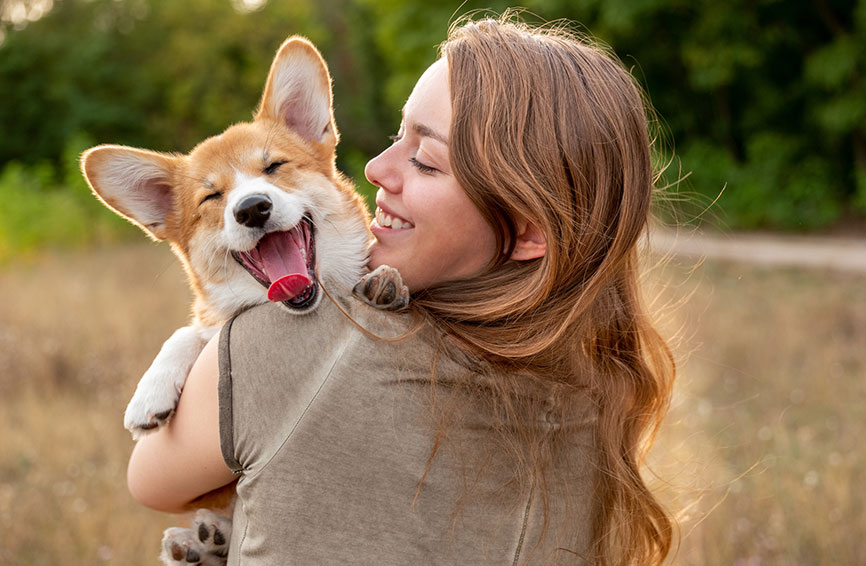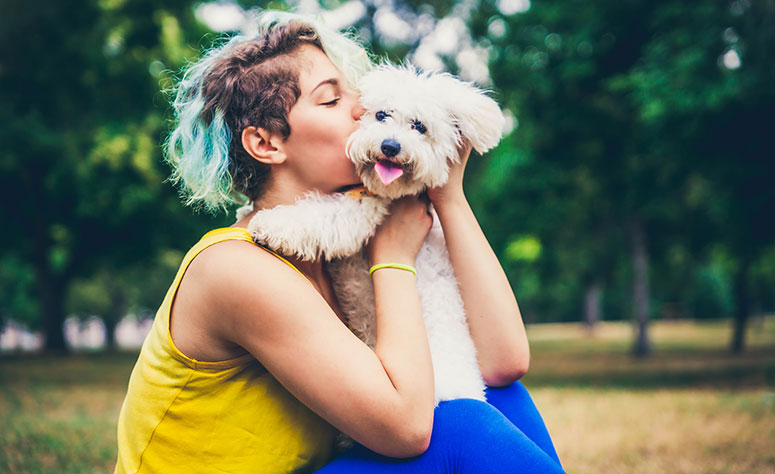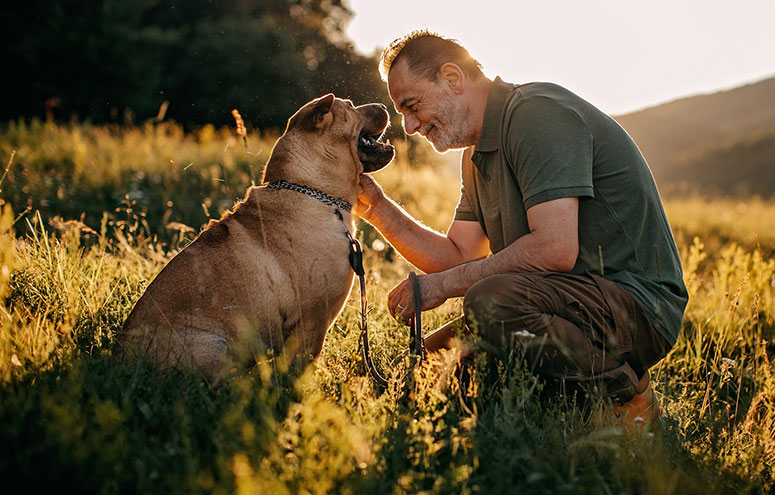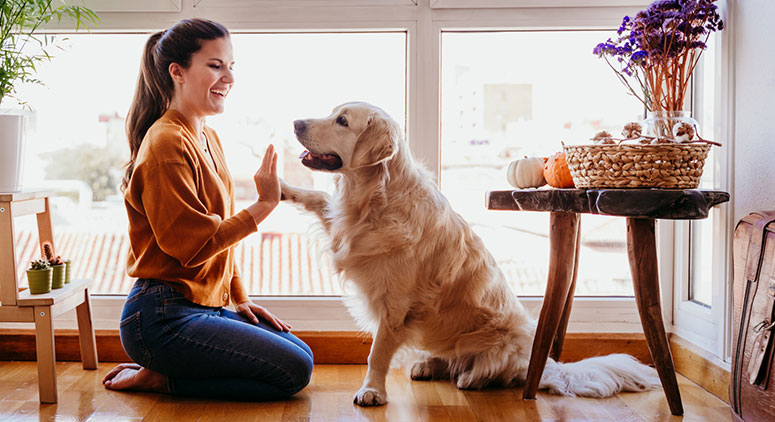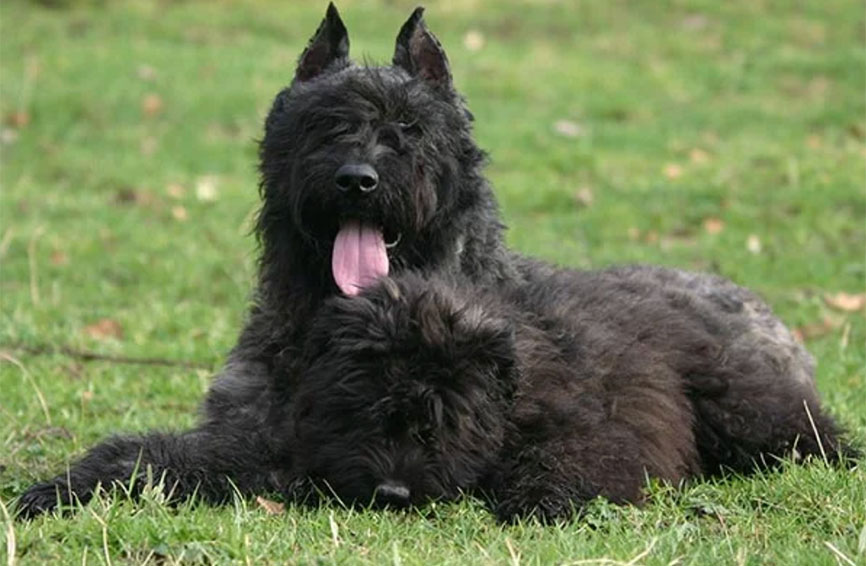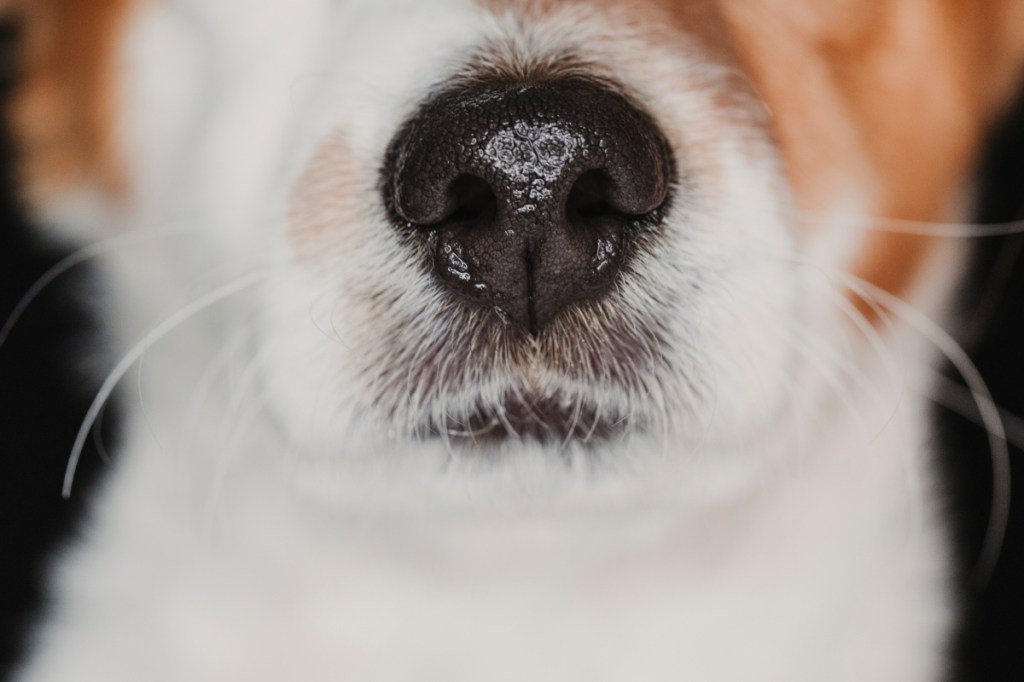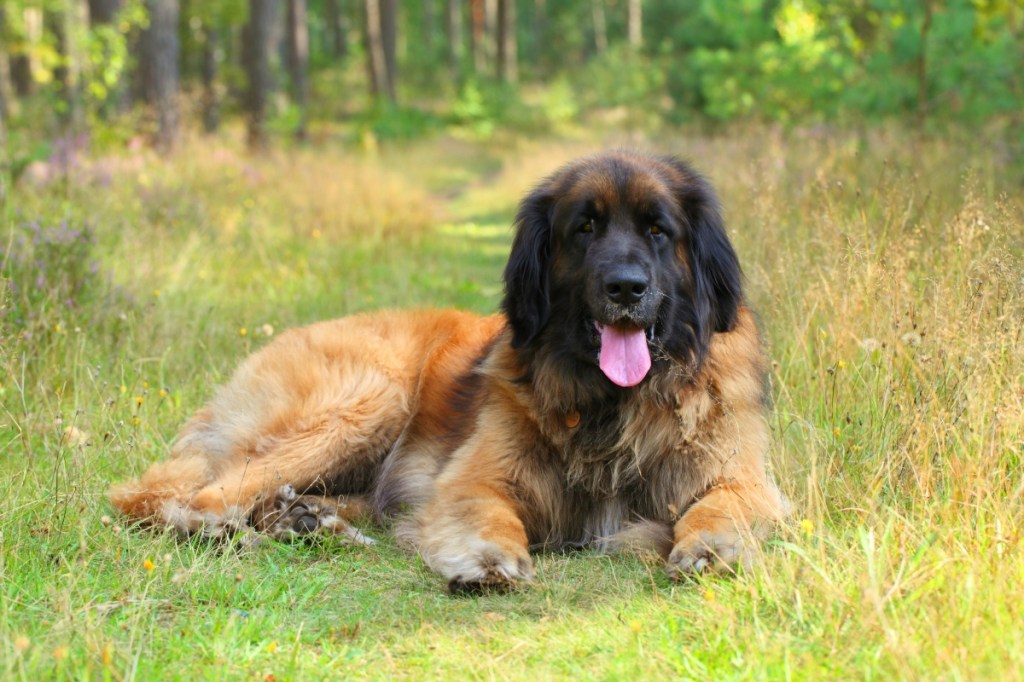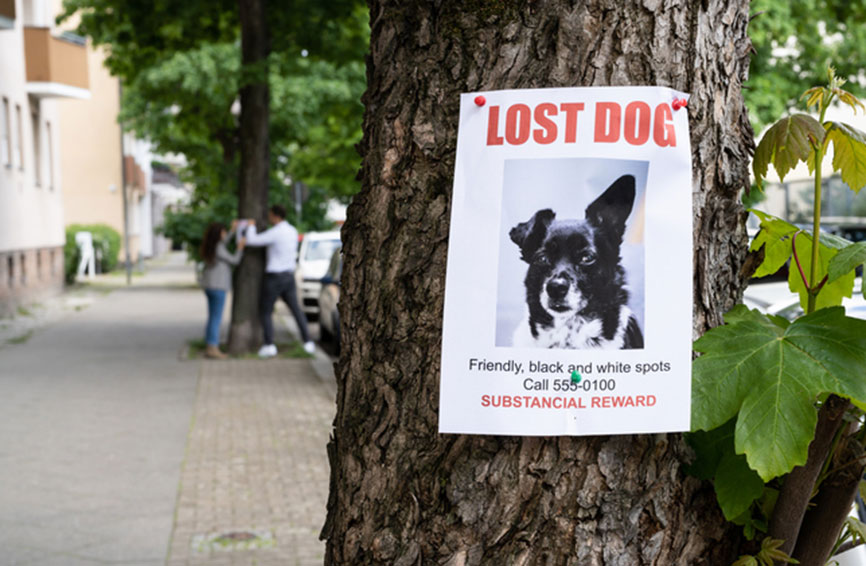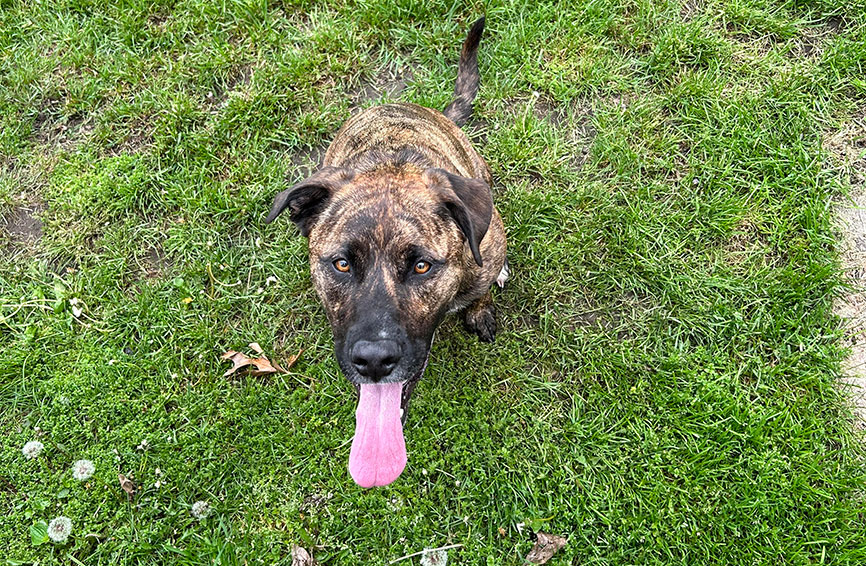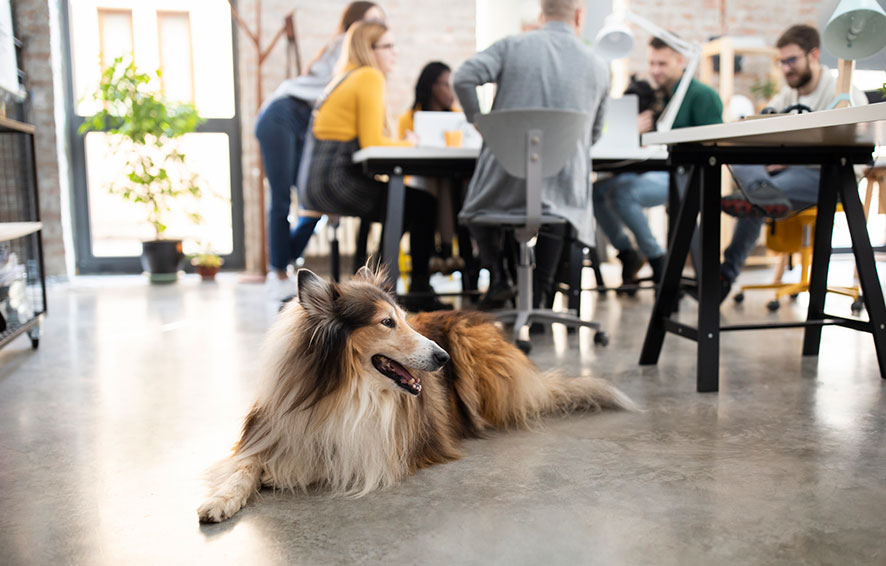Key Takeaways
- Like people, dogs have a preferred ‘love language’ or way of understanding how their humans care for them.
- Your dog’s ‘love language’ is determined by their history, environment and personality.
- Once you know your dog’s favorite ‘love language,’ you can respond to them in a way they will most understand and appreciate.
Table of Contents
The term ‘love language’ was popularized in the book “The Five Love Languages” by author and counselor Dr. Gary Chapman to refer to how a person prefers expressing and receiving love from a partner.
The term is often used to refer to many different methods of expressing love – including how we show love to our dogs. Chapman defines the five love languages as words of affirmation, physical touch, gift-giving, quality time and acts of service. According to Chapman’s theory, everyone prefers one love language over the others.
As a dog parent or guardian, it’s important to recognize that dogs are unique, emotional beings with needs beyond basic care, like exercise and food. It’s our responsibility to ensure they feel joy every day and make them feel loved.
Dogs are intelligent beings and are much more in tune with their feelings and ours than most people realize. Dogs have an innate desire to feel acknowledged and loved and need to know that they are a valued part of the family to feel happy and content.
Many dog parents attempt to show their dog love like they would a child, such as doting on them, and often this miscommunication creates anxiety for dogs, which leads to behavioral issues. In fact, dog behaviors most people seek help for are mostly due to a lack of understanding of what their dog needs to feel loved, secure, and happy.
Once people learn how to communicate in canine “language” effectively, their dog’s behavior naturally changes, and they can feel relaxed and free to experience more joy and playfulness. Recognizing your dog’s love language and knowing how to give them the love they seek gives them a sense of relief and provides the comfort they need to allow their true selves to blossom.
What determines a dog’s love language?
Their history
As people, the love language that determines if we feel loved can change throughout our lifetime because our priorities may change as we evolve and grow through self-reflection, awareness, and personal healing.
However, dogs are forever like a two-year-old child in their dependence on us. They will always rely on us to feed and exercise them, give them a safe place to call home, and look to us for guidance, support, safety, happiness, and love. Their love language is not likely to change unless they have been abused, neglected, or experienced trauma.
For dogs with a traumatic history, who experienced or witnessed physical abuse, physical touch may be challenging at first until they learn to feel safe in their new family. They will also need guidance and help to learn how to trust guests in the home.
Similarly, suppose a dog has been verbally abused, and experienced people raising their voice and using harsh words. When they make a mistake, words of affirmation are critical to focus on. However, it’s not just the words your dog needs to hear, but also being aware of your tone of voice and what you think and feel, as this contributes to your dog’s ability to learn to feel safe and trust you.
Their personality
Every dog has a unique personality with many layers. Some dogs need to be physically close to us and wouldn’t feel loved without physical affection, while other dogs are much more independent and enjoy a snuggle, but they also need alone time.
Dogs who are more confident, secure, serious, and independent tend to be less driven to please us and don’t seem to need affection or approval as much. While dogs who are more sensitive, insecure, nervous, or fearful are more likely to seek guidance, support, affection, and praise because they don’t feel equipped to handle the world around them.
Leadership
Dogs need boundaries, just like children do; without them, they can feel anxious, responsible, overwhelmed, fearful, confused, and stressed. When dogs experience intense emotions, they may appear to seek more affection, demand playtime, and be unresponsive when you ask them to do something.
This is because they believe they are taking care of us. After all, they don’t see leadership from their perspective. Once dogs change their mind about who’s taking care of who, their love language can change.
For example, after witnessing leadership from their family, a dog who has never played with their toys may feel such a sense of relief that they can finally relax and enjoy playing. Then they can enjoy quality time differently. Dogs also usually stop pacing and feeling the continual need to check in with their family members. They can ultimately settle and enjoy affection because their belief about who’s responsible has changed.
Now physical touch has become more important in their lives. Dogs who are independent and don’t appear to need verbal praise, once they see you as their leader, will be more responsive to words of affirmation and praise.
Environment
Dogs are affected by their environment, just as we are. This includes their physical surroundings, how calm and relaxed your home feels, and their human and canine family members’ energy, emotions, and health. If a dog feels tension in their home, from their humans or another dog in the house, it can create stress, insecurity, fear, anxiety, and behavioral issues will emerge. This will change how a dog interacts with you and what they need from you.
When stressed, dogs don’t respond calmly and tend to have a heightened reaction, just like people. Dogs may appear to be ‘demanding’, their barking may increase, their separation anxiety may escalate, their reaction to people or dogs on walks could intensify, to name a few indicators that your dog doesn’t see you as their dog parent, but their ‘puppy’ that they are responsible for. Therefore, their love language may change because they can’t relax and enjoy affection, they may appear not to care about your verbal praise, and they may not play as long because they are too stressed.
How can you figure out your dog’s love language?
Dogs, like people, may need several love languages fulfilled to feel happy and loved. Watch your dog’s reaction to see which language they respond to. Below each description are ways to illustrate that love language to your dog:
Words of affirmation
All dogs enjoy acknowledgment and praise when they make good choices. However, some dogs don’t need the affirmation as much as others. Notice how your dog responds when you call them to you. Do they come bounding over joyfully expecting your verbal praise, or do they look at you from across the yard as though they are deciding whether to respond? If your dog has selective hearing and you can see their wheels turning, they ignore your recall, and you can almost hear them say, “I choose ‘No’, I’ll come when I’m ready”, words of affirmation aren’t high on their list! This indicates your dog doesn’t see you as their leader or decision-maker.
Here are some ways to share words of affirmation:
- Saying “I love you just as you are.” Calling your dog over for a snuggle and verbally telling them that you love and accept them can be a huge relief for them. While they may not understand your words, they will feel the intent behind them.
- Verbal praise, as they learn a new skill, is vital in building confidence and creating a bond built on trust
Physical touch
If your dog constantly seeks affection from you and doesn’t settle unless you are petting them or they are laying close to or touching you, physical touch is vital to their connection with you. However, if this is a constant, demanding need, it’s also a sign that your dog is experiencing anxiety.
When a dog always needs to be close to you, it’s a clear sign they feel responsible for caring for you, which is a huge burden for a dog. In our dog’s eyes, we are either the leader or the equivalent of the ‘puppy.’
If a dog receives kind, loving leadership signals from their guardian, they can truly enjoy affection. If your dog is more independent and doesn’t seek petting, physical touch is lower on their love language priority list.
- Brushing your dog is something that most pups love. It’s a great way to bond with your dog while caring for their needs. Give them some affection before, during, and after you brush them. Help your dog feel pampered and refreshed, just like going to the salon.
- Most dogs enjoy receiving affection and snuggling. Take time every day to give your pup affection. This is crucial to helping your dog feel acknowledged, loved, and bonded to you.
- Praising them with physical touch is essential in acknowledging your dog when they are learning or you want to reinforce that they have made a good choice. While handing them a yummy treat, make eye contact, and give them a loving pet, showing them how proud you are of them.
Gift-giving
Gift-giving for dogs doesn’t mean buying them a new toy each week. You can rotate their toys; those you have hidden bring so much joy when they magically appear in the toy basket! Some dogs genuinely love their toys, have designated one toy as their favorite, and will carry around their ‘special toy’ with pride every day of their life. They never chew on it but hold it, gently mouth it, or lay with it, which comforts them.
Other dogs may equally love toys, but they receive the most joy when they can shred them quickly, sitting happily in a pile of stuffing. Wrapping gifts in tissue paper for a birthday or during the holidays allows them to unwrap the present themselves, which is fun and rewarding for them.
If a dog doesn’t enjoy toys it may be because they are a rescue and have no idea how to play with toys. They need you to play with them, show and encourage them, and let them know it’s OK. More serious dogs, or some senior dogs, may have no interest in playing.
Here are a few ways to perform gift-giving:
- Buy your dog a new toy to play with. Dogs should have access to things they can entertain themselves with, especially puppies or young dogs when they are more active.
- Purchase a puzzle game to challenge and stimulate your dog mentally. Fill the puzzle with some tasty treats and encourage your dog to discover how to find them.
- Bones and chews are a gift that dogs love. They are also a great way to help your dog decompress, release anxiety, and entertain themselves. Always monitor your dog when they have a bone, and if you have multiple dogs, ensure they have their own space to feel safe and comfortable.
Quality time
This is the most essential love language for all dogs and is the ultimate way of showing them how much we love them. If we take care of them but don’t spend quality time interacting with our dogs, they won’t feel genuinely acknowledged, appreciated, and loved.
Remember that dogs are always living in the present moment; they don’t need to meditate or get quiet and grounded to be present; it’s natural for animals. Notice how your dog responds to you when you are distracted by talking on the phone during their walk, watching TV, texting, or checking social media while you play with them. Your energy is divided, and their level of playfulness won’t be at full capacity, they may walk away disinterested after a few minutes or start barking at you to get your attention.
When you take your dog on a walk, leave your phone at home, give your dog your undivided attention, and talk to them and look at them during your walks. Notice the difference in their ability to focus on you, respond to you, and their reaction to potential triggers when you fully engage with them. You will notice your dog is more animated and playful, and they may play for longer.
Here are a few ways to spend quality time:
- When interacting with your dog, make eye contact, which helps them to feel heard, valued, and respected.
- Take time out of your day to stop everything, put down your ‘to-do list,’ and play with your dog. Truly step into playful energy, and have fun with your dog! This looks different for every dog, whether playing fetch, hide-and-seek in the house or sitting on the floor and playing with their toys together.
- Trying new experiences with your dog is a wonderful way to enjoy quality time. Exposing your dog to new environments, learning opportunities, and experiences can help to develop their confidence and self-control, as well as help them overcome anxieties and fears.
Acts of service
For humans, this is defined as performing actions that make your partner feel loved and appreciated. As dog parents, acts of service are part of taking care of our pups — making time to brush their teeth, trim their nails, groom them, and ensure they get enough exercise and have healthy food to eat. While dogs have no concept of how many hours you need to work to pay for their pet insurance, food, treats, or vet care, they know when they are in a loving home and are treated like a family member.
Here are a few ways to perform acts of service:
- A trip to the groomer helps your dog feel their best. It’s an opportunity for them to have a good experience with someone else, build trust, and feel more comfortable physically after a great grooming appointment. Some dogs will even prance, or swagger, like saying, “Look at me, don’t I look pretty!” after a trip to the groomers.
- Washing dog beds and blankets is essential in caring for your dog. A dog’s sense of smell is much more acute than ours, so keeping their bedding fresh and clean allows them to relax more easily.
- Washing their food and water bowls after each meal prevents bacteria from building and keeps your dog healthy. Your dog will appreciate you refilling their water bowl with fresh, filtered water throughout the day.
How addressing your dog’s love language helps you
Dogs have soul contracts with us and have agreed to help us with certain life lessons. For example, if you work from home and sit at your computer all day, your pup may come up and paw your leg, drop a ball at your feet, or start whining. While you may find it annoying, know that your dog is reminding you to step away from work for a while and take a much-needed break.
If you pay attention to their reminder and play fetch in the yard with them for 10 minutes, enjoy a short walk, or drink a cup of tea as you snuggle your pup on the couch, thank your dog for helping you to practice self-care.
This much-needed break allows you to recharge, reset, decompress, and return to work with a clearer mind, allowing you to function at higher levels while gaining more balance.
